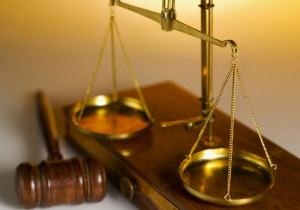The judiciary continues to face interferences from the executive but for the first time judges have dared to challenge and resist them while publicly denouncing them.
Judges do not have effective internal independence and corruption remains endemic among the judiciary. A draft code of conduct for judges is currently under discussion.
In September 2004, in what was a major step towards restoring the independence of the judiciary, two organic laws relating to the status of judges and the Higher Judicial Council were passed, with the Higher Judicial Council regaining its original constitutional powers.
In November 2004, the Penal Code and the Code of Criminal Procedure, both dating from 1966, were amended with a view to incorporating international human rights standards. Judicial infrastructure is largely inadequate and the backlog of cases remains a matter of concern.
The legal profession is independent but lawyers are sometimes identified with their clients’ causes and subjected to intimidation for defending sensitive cases. Prosecutors, who form part of the judiciary, experience interference, pressure and unwarranted requests from the executive. Access to justice for people of limited means remains difficult although the state provides legal assistance.
Algeria-Attacks on Justice 2005-Publications-2008 (full text, PDF)

